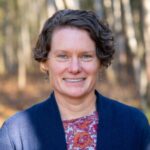When Governor Sean Parnell decided to reject federal Medicaid expansion last fall, he asked for a study detailing the safety net services available to low income Alaskans. That report is out this week and it shows 12,000 Alaskans have no reliable access to health care, particularly specialty care.
According to the report, basic health care- like a primary care doctor’s visit is generally accessible, even to low income, uninsured patients. Community health centers like the Anchorage Neighborhood Health Center provide services on a sliding fee scale.
The report was prepared by the Department of Health and Social Services. Commissioner Bill Streur says there are 200 locations across the state that offer basic health care to low income Alaskans:
“The range of preventative services, the range of primary care services and the options for those folks are pretty significant.”
But Streur acknowledges many low income and uninsured Alaskans have more complicated medical needs. When that’s the case, they may find help through a patchwork system of charity care. Those options include hospital emergency rooms and Project Access, which connects uninsured residents to specialists willing to wave their fees. Streur says his department is trying to figure out how many uninsured Alaskans need regular access to specialty care:
“The majority are people with a chronic condition that require specialty care and there’s no service available to them.”
The report also identifies outpatient mental health care as an area that may not be available to the uninsured. The department doesn’t make recommendations for addressing the overall gap in access. Streur says that will be the job of the Medicaid Reform Advisory Group that started meeting this spring:
“What could we do under Medicaid, what could we do under other initiatives to be able to fill this gap?”
Alaskans who fall into the gap generally are childless adults who have incomes under $15,000 a year. They aren’t eligible for subsidies to buy insurance under the Affordable Care Act because the law assumed they would qualify for Medicaid instead.
This story is part of a reporting partnership between APRN, NPR and Kaiser Health News.
Annie Feidt is the broadcast managing editor at Alaska Public Media. Reach her atafeidt@alaskapublic.org. Read more about Anniehere.





